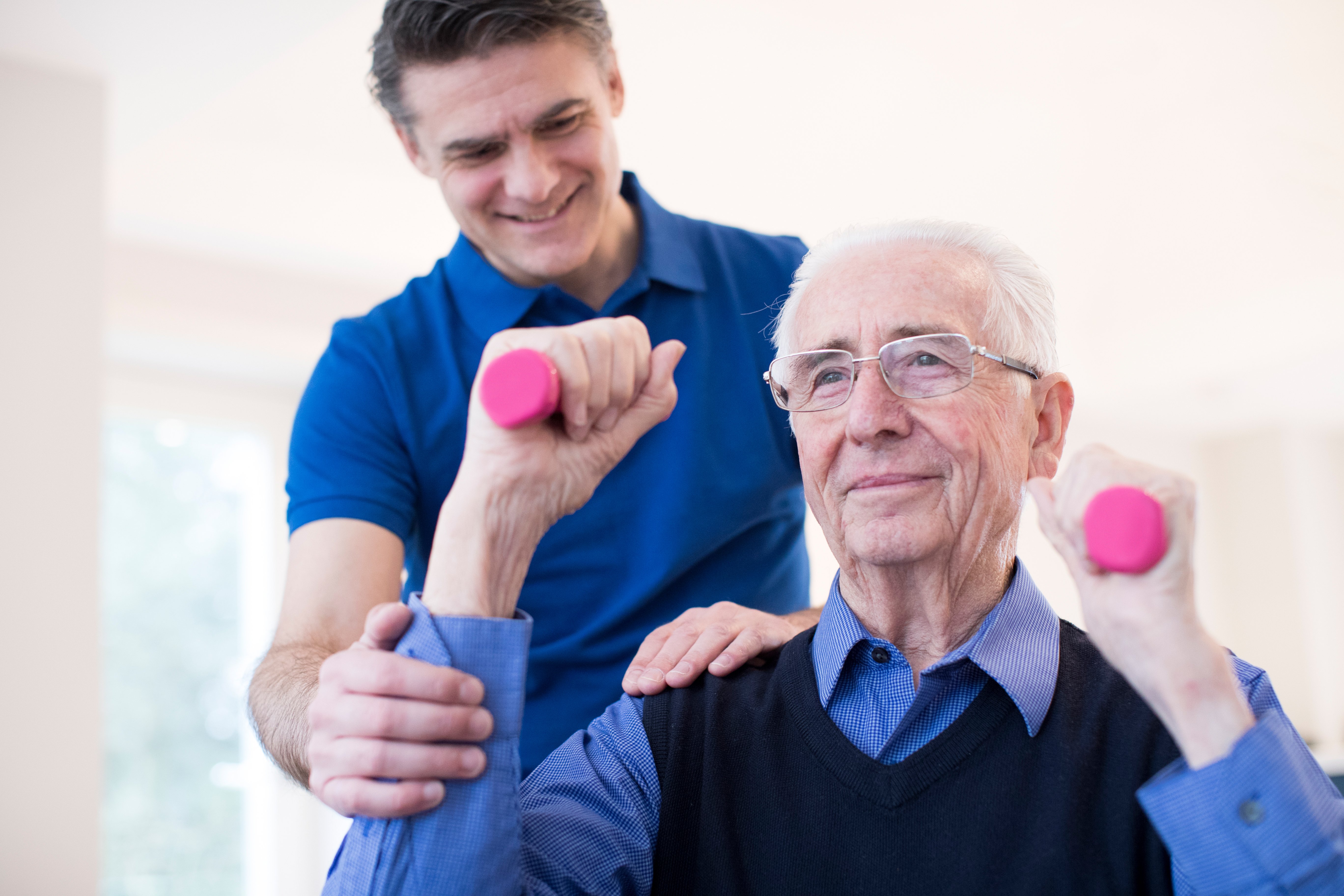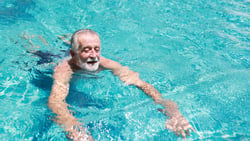Discover how exercise can greatly benefit people with dementia, as well as some of our favourite exercise ideas
When it comes to providing stimulating activities for people living with dementia, there is a great deal of thought concentrated on activities that can stimulate cognitive abilities and memory function such as puzzles, word games or looking through photo albums.
Naturally, it is understandable that so much effort goes into finding ways to provide stimulation for the mind, but what is equally as important is stimulating the body for people with dementia through exercise, because very often one can have a beneficial effect for the other.

Whether it’s indoor or outdoor exercise, helping and encouraging residents who are living with dementia to keep active with a variety of different physical activities can be hugely beneficial to their physical and mental wellbeing.
So much of providing stimulating activities for people with dementia is about engaging with their senses and helping them to maintain their independence, a sense of self as well as a connection to the people who love them and the world around them, and physical activities provide the perfect stimulation to achieve all these goals at once.
There are many ways that exercise can benefit someone with dementia both physically and mentally. These include:
- Improved heart health as well as improved health of blood vessels, which reduces the risk of high blood pressure and heart disease.
- Improving physical fitness which means maintaining stronger muscles and as much flexibility as is possible. This can help people maintain independence for longer, reduce the risk of falls by improving balance and stability, and might even mitigate some of the physical issues that are present in the later stages of dementia.
- Exercise means utilising the body's energy stores, which in turn means a greater chance of improved sleep, which can counteract the common issues of agitation, restlessness and insomnia that come with dementia. Also, studies show that a good night’s sleep can positively affect a person’s mood and cognitive abilities. This potential for improved cognition also means there is a chance to slow down mental decline.
- Reducing isolation by providing outlets for social interaction with family, fellow residents and care staff
- Studies show that exercise can create a positive mood, which can boost confidence and self-esteem, which can counteract the common issues of depression and anxiety in people with dementia.
Get moving with these exercise ideas

Walking
One of the biggest advantages of walking is that it can be done by virtually anyone. Whether it’s getting more steps indoors or whether it’s walking around the local area, taking part in a walking group outing or walking in nature, this will greatly benefit residents with dementia because it gives them the opportunity to get some fresh air, a change of scenery, and work their muscles, meaning they can potentially improve issues such as balance and mobility as well as stimulating their senses by taking in their surroundings.

Seated exercise
Because people with dementia can often be acutely at risk of fall-related injuries, doing everything possible to ensure they retain as much mobility and stability is important. By doing seated exercises, people with dementia have the opportunity to gently work their muscles to ensure they stay balanced and maintain strength. And because studies show that regular exercise releases endorphins into the brain, this can help significantly with their mood and quality of life.

Swimming
Under supervision, swimming can be a very powerful way to stimulate the senses because they might find the sensation of being in the water soothing and calming. The feel of the water against them allows them to maintain a connection to their surroundings. And, because swimming offers zero impact on the joints, it also gives them the chance to work their muscles without the risk of injury.

Dancing
Whether seated or standing, dancing can be a great form of exercise for people with dementia, but it also offers other benefits beyond the physical. If they are participating in a group dancing activity, they have the chance to build connections with those around them. Moreover, the type of music used in dance activities can help to rekindle fond memories, which helps them to maintain the connection with who they are and the life they have led.
Oomph! OnDemand
Hundreds of activity ideas and programs, all created by experts and designed to provide quality of life to those living in care homes.





.png)

.jpg)
.webp?width=80&height=80&name=HTD%20Awards%202023%20Badge%20(4).webp)














